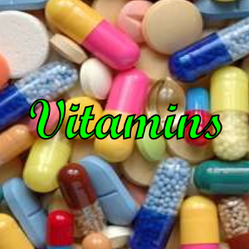What Is Vitamin D?
Vitamin D is a fat soluble vitamin that was first isolated from cod liver oil and described in 1918 by an Englishman, Sir Edward Mellanby. The vitamin was prepared in pure form in 1931.
It is sometimes called the "sunshine vitamin" because it can be made in the skin after exposure to ultra violet rays in the sunlight.
Vitamin D can be stored in the body.
What Does Vitamin D Do For You?
It is an excellent source of nourishment for teeth and bones since it promotes the absorption of calcium and phosphate from the intestine.
Food Sources
Important
- Cod liver oil (as a supplement) (20g serving)
- Oily fish
- Eggs (in yolk) (2)
Moderate
- Margarine/butter (10g serving)
- Enriched foods e.g. Milo (10g serving)
Low or Nil
- Dairy products
- Meat
- Fish
- Legumes
- Cereals
- Fruit and vegetables
What Destroys Vitamin D?
It is a very stable vitamin. There is hardly any loss in the cooking process and while foods are stored for a reasonable length of time.
Healthy liver and kidney functions are essential for the absorption of natural vitamin D into the body.
Deficiency Problems and Symptoms
Vitamin D deficiency can result in rickets (bent and weakened bones usually occurring in babies and children) and osteomalacia (softening of the bone in adults).
Rickets is basically a disease afflicting children growing up in climates with insufficient sunlight. The isolation and discovery of vitamin D was confused by the fact that it was found that children suffering from rickets could be cured by either exposing them to sunlight or giving them cod liver oil. The common factor is, of course, vitamin D, but even today science is not certain about the precise reason for the link between these two sources.
Rickets is comparatively rare in Australia. In some northern hemisphere countries vitamin D is added to milk to compensate for the lack of sunshine. Eskimos and other races who live close to the North Pole, where six months of the year is spent in darkness, rarely suffer from vitamin D deficiency because their diet is rich in fish and fish oils.
Conversely, it was found that in sunny India widows in purdah who shut themselves away in their houses after their husband's death were prone to osteomalacia since they were deprived of sunshine and did not eat foods supplying the vitamin.
In Australia, the elderly, who may tend to stay indoors out of the sunlight and not eat sufficient foods containing vitamin D, are the group most at risk of deficiency.
Recommended Daily Intake
In a sunny climate such as Australia most, if not all, of the vitamin D requirements are received from the sun's rays.
However, since pregnant and breast feeding women do require extra D it is suggested that they eat more D rich foods.
10 micrograms daily is recommended for babies and young children.
Use of Supplements (on medical advice)
They are essential for the treatment of rickets and osteomalacia.
They have been used to treat brittle bones and rheumatoid arthritis.
Toxicity
Vitamin D is considered the most toxic of all vitamins.
There is a risk of toxicity if only several times the recommended intake occurs on a regular basis.
Toxicity symptoms include nausea, loss of appetite, head pains, and obvious bone growths resulting from an accumulation of calcium deposits.
Note: Once the body is suntanned no more Vitamin D can be made in the skin because the suntan itself blocks out the ultra violet light. Therefore, excessive exposure to the sun will not cause an overdose of vitamin D but it does increase the risk of skin cancer unless protective creams are applied to the skin.
You might also like
Vitamin D Deficiency and Recognizing the SymptomsVitamin D is a vitamin that is essential for good health. Without enough Vit...
Taking Daily VitaminsTaking daily vitamins helps your body to function as it should, each organ ha...




 Your rash and itching problems may be Scabieson 03/10/2013
Your rash and itching problems may be Scabieson 03/10/2013
 Tickson 11/06/2011
Tickson 11/06/2011
 Vitamin Kon 10/10/2011
Vitamin Kon 10/10/2011
 Vitamin Eon 10/10/2011
Vitamin Eon 10/10/2011


Comments